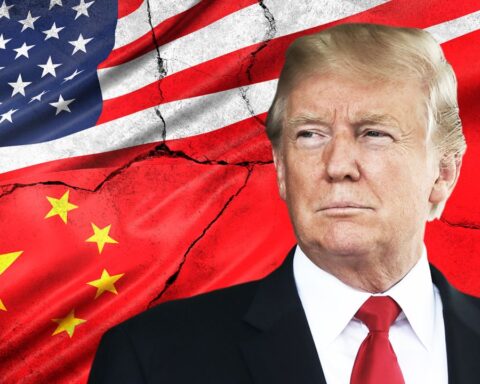Brooking – The former stresses free markets, openness, collaboration, and interdependence, themes that suggest Huawei and other Chinese companies ought to be treated like other global private sector actors and welcomed into foreign networks.
Meanwhile, domestic Chinese government, commercial, and academic discourse emphasizes the limits of free markets and the dangers of reliance on foreign technologies — and, accordingly, the need for industrial policy and government control to protect technologies, companies, and networks.
Domestic Chinese discourse also indicates that commercial communication networks, including telecommunications systems, might be used to project power and influence offensively; that international technical standards offer a means with which to cement such power and influence; and — above all — that IT architectures are a domain of zero-sum competition.
That external Chinese government and corporate messaging might be disingenuous is by no means a novel conclusion. However, the core differences between that messaging and Chinese internal discussion on IT remain largely undocumented — despite China’s increasing development of and influence over international IT infrastructures, technologies, and norms. This report seeks to fill that gap, documenting the tension between external and internal Chinese discussions on telecommunications, as well as IT more broadly. The report also parses internal discourse for insight into Beijing’s intent, ambitions, and strategy. This report should raise questions about China’s government and commercial messaging, as well as what that messaging may obscure.
This report is motivated by China’s growing influence in telecommunications and the growing controversy accompanying that influence. However, China’s telecommunications resources, ambitions, and strategic framing are intertwined with those around IT more broadly. For that reason, this report reviews Chinese government, commercial, and academic discussion of both IT generally and telecommunications specifically. This report also contextualizes its analysis in terms of Beijing’s program to become a “cyber great power,” also translated as “network great power,” the blueprint for China’ ambitions to leapfrog legacy industrial leaders and define the architecture of the digital revolution.
A new technological landscape is taking shape. China works to define that landscape. More than ever, it is imperative that China’s ambitions be documented.
The report advances several primary findings:
1
While China repeatedly discusses its “cyber great power” ambitions internally, those are rarely acknowledged in outward-facing messaging. The phrase “cyber great power” is a key concept guiding Chinese strategy in telecommunications as well as IT more broadly. It appears in the title of almost every major speech by President Xi Jinping on China’s telecommunications and network strategy aimed at a domestic audience since 2014. But the phrase is rarely found in messaging aimed at external foreign audiences, appearing only once in six years of remarks by Foreign Ministry spokespersons. This suggests that Beijing intentionally dilutes discussions of its ambitions in order not to alarm foreign audiences.
2
Even as the Chinese government encourages foreign audiences to purchase Huawei products, its leaders warn domestic audiences of the dangers that stem from reliance on foreign technology. Years before the trade war and the Trump administration’s restrictions on Huawei, Xi argued that “the control of core technology by others is our biggest hidden danger” and that allowing foreigners to control core technology “is like building a house on someone else’s foundation.” He declared that “China must have its own technology, and it must have strong technology.”
3
The Chinese government encourages foreign audiences skeptical of Huawei to adhere to market principles. At the same time, the government cautions domestic audiences that IT network development requires industrial policy and cannot be entrusted to market forces. Xi has declared, explicitly, that “market exchange cannot bring us core technologies, and money cannot buy core technologies.”
4
Beijing calls foreign security concerns over Huawei “lame excuse[s]” and pure “politics.” At the same time, China expresses similar concerns domestically over the incorporation of foreign technology into its networks. Security is paramount for Xi, who has repeatedly declared that “without cyber security, there will be no national security.” Accordingly, he argues for adoption only of foreign technology that is “controllable” — while leaders at the Ministry of Industry and Information Technology (MIIT) stress that foreign technology networks tend not to be “controllable.” China must therefore build its own networks that are both “independent and controllable.”
5
Commercial and academic Chinese sources suggest that the international community’s security concerns over Chinese telecommunications might not be misplaced, and that Beijing might see telecommunications and other commercial networks as means to project offensive power globally. Xi presents IT as a key part of China’s military-civil fusion strategy: In 2018, he said that “military-civil fusion in cybersecurity and informatization is the key field and frontier field for military-civil fusion.” Downstream, Qin An, director of the China Institute of Cyberspace Strategy, argued in 2016 that “due to the highly monopolistic nature of information technology systems, it is unlikely that there will be two different systems for military and civilian use … it is particularly necessary [for China] to integrate military and civilian resources through a military-civil fusion system.”
6
When discussing standard-setting with foreign audiences, the Chinese government stresses win-win collaboration. Yet domestic discussion emphasizes the competitive value of standards for establishing technological dominance and, correspondingly, the need to build “discourse power” in global IT development. Xi argues that in cyber security and telecommunications, the “game of great powers is not only a game of technology but also a game of ideas and discourse power,” a reference to internet governance and standards. Other sources build on Xi’s language, noting that China works to set standards in 5G — and IT more broadly — in order to overtake the West, that doing so provides economic and military advantages. In short, those “who set the standards gain the world.”
This report was completed before Rush Doshi’s government service, involves only open sources, and does not necessarily reflect the official policy or position of any agency of the U.S. government.
By: Rush Doshi, Emily de La Bruyère, Nathan Picarsic, John Ferguson






